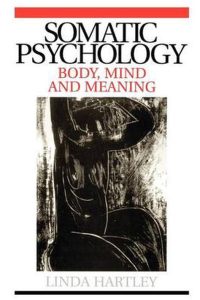Module: Somatic Psychology
 UPDATED CURRICULUM: 4 DAYS ADDED ON APPROACHES TO SOMATIC TRAUMA.
UPDATED CURRICULUM: 4 DAYS ADDED ON APPROACHES TO SOMATIC TRAUMA.
In our work with the body we experience the deep interrelationship between soma, psyche and spirit. Somatic Psychology seeks to give language and meaning to the fluid and organic experiences of somatic process, enabling us to dialogue and interact meaningfully with material arising from the unconscious in bodywork and movement therapy practice.
Tutor: Jane Okondo
Dates: 6 long weekends over an academic year.
- 2026: 15 – 18 Oct (4 days), 11 – 13 Dec.
- 2027: 19 – 21 Feb; 16 – 18 Apr; 11 – 13 June, 9 – 12 July (4 days, including Presentations by Diploma Students).
Times: 10:30am–6:00pm; Sundays 10am – 5.30pm.
Venue: Near Totnes, South Devon, UK.
Cost: £1950 (£300 Deposit to secure your place, plus 10 monthly interest free payments of £165 (due on 1st of each month, Sept 2026 – June 2027)
Application Process – Click here for details.
Prerequisite
Participants will have completed either the Infant Movement, Authentic Movement, and/or the Embodied Anatomy modules of the Diploma Programme. The Somatic Psychology Module can also be taken as CPD by somatic movement professionals and students in related fields of practice (you will have studied for at least 100 hours in some other approach to somatic movement or dance movement therapy). Please apply with details of relevant study and professional practice and join us for an intro workshop.
The module will explore:
- embryology and the roots of the sense of self and attachment patterns
- psychological models emerging out of somatic and pre and perinatal process, including both theory and practice.
- the role of the therapist and their embodied presence in relationship to the client, including somatic skills of listening, supporting, witnessing, containing and processing
- setting up a somatic movement professional practice, ISMETA Scope of Practice & Code of Ethics, offering a final presentation and preparation for a Written Case Study.
1. Embodiment of Spirit: an Embryological Journey
- The process of development from conception through the first few weeks of embryological life.
- Movement and body meditations to explore the embodiment of cells, membranes, tissues and fluids, engaging with the unfolding of form through which the embryonic sense of self begins to emerge
- Asking what embodiment means to us as human beings, we will consider how the human embryo embodies spirit
- The origins of relational patterns as they manifest in the unfolding patterns of movement will be explored
2. Body, Feelings, Mind: Embryology and the Body Systems
- The splitting and integration of body, feelings and mind, with reference to the embryological layers (Boadella) and the expressive and shadow functions of the body systems.
3. Pre and perinatal Process: Development of Sub-personalities
- The influence of perinatal experience on the development of the will and personality patterns, with reference to Grof’s basic pre and perinatal matrix
- The development of sub-personalities, their somatic manifestations, and methods of working with them through voice dialogue and inner body dialogue, identification and dis-identification, and movement process.
4. Early Development and Sense of Self
- The development of the Senses of self, with particular reference to Stern’s work, and in relation to Infant Movement Development and Authentic Movement practices.
- Stages of early development; how early experiences of attachment impact our embodiment.
5. Somatic approaches for Trauma
- Approaches for working with trauma through somatic movement.
- Drawing from the latest theories and practice for working with nervous system imprints and early developmental trauma.
- Specific bodywork practices for trauma. Including hyper and hypo as well as polyvagal theory and practice.
- Developing presence skills in practice from work of Merete Holm Brandberg.
6. Movement Process Work: the Body as Shadow
- The body as shadow: movement Process Work and the theory of the Dreambody (Mindell)
- The Role of the Therapist and their Embodied Presence
- The dance of relationship: the therapist’s embodied presence as container and as information: transference and countertransference will be addressed
- The many levels of listening: gathering information from verbal and non-verbal messages, holding creative tension, and creating a context for the work
- Empathy, compassionate witnessing, resonance and clear seeing.
 For details of ‘Somatic Psychology: Mody, Mind and Meaning’ by Linda Hartley, please see the publication page.
For details of ‘Somatic Psychology: Mody, Mind and Meaning’ by Linda Hartley, please see the publication page.
For more information the other modules, please click the links below: